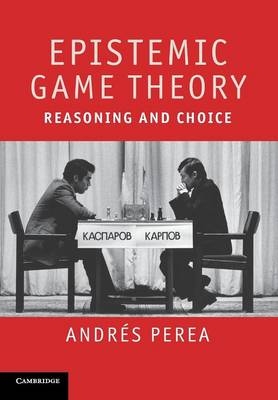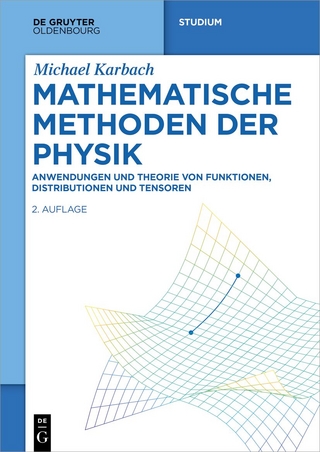
Epistemic Game Theory
Cambridge University Press (Verlag)
978-1-107-40139-6 (ISBN)
In everyday life we must often reach decisions while knowing that the outcome will not only depend on our own choice, but also on the choices of others. These situations are the focus of epistemic game theory. Unlike classical game theory, it explores how people may reason about their opponents before they make their final choice in a game. Packed with examples and practical problems based on stories from everyday life, this is the first textbook to explain the principles of epistemic game theory. Each chapter is dedicated to one particular, natural way of reasoning. The book then shows how each of these ways of reasoning will affect the final choices that can rationally be made and how these choices can be found by iterative procedures. Moreover, it does so in a way that uses elementary mathematics and does not presuppose any previous knowledge of game theory.
Andrés Perea is Associate Professor in the Department of Quantitative Economics, Maastricht University, The Netherlands. He has taught courses on epistemic game theory at several European universities and is the author of Rationality in Extensive Form Games (2001).
Acknowledgements; 1. Introduction; Part I. Standard Beliefs in Static Games: 2. Belief in the opponents' rationality; 3. Common belief in rationality; 4. Simple belief hierarchies; Part II. Lexicographic Beliefs in Static Games: 5. Primary belief in the opponent's rationality; 6. Respecting the opponent's preferences; 7. Assuming the opponent's rationality; Part III. Conditional Beliefs in Dynamic Games: 8. Belief in the opponents' future rationality; 9. Strong belief in the opponents' rationality; Bibliography; Index.
| Erscheint lt. Verlag | 7.6.2012 |
|---|---|
| Zusatzinfo | 117 Tables, black and white; 54 Line drawings, unspecified |
| Verlagsort | Cambridge |
| Sprache | englisch |
| Maße | 173 x 244 mm |
| Gewicht | 1130 g |
| Themenwelt | Mathematik / Informatik ► Mathematik ► Angewandte Mathematik |
| Mathematik / Informatik ► Mathematik ► Finanz- / Wirtschaftsmathematik | |
| Wirtschaft ► Volkswirtschaftslehre ► Mikroökonomie | |
| ISBN-10 | 1-107-40139-9 / 1107401399 |
| ISBN-13 | 978-1-107-40139-6 / 9781107401396 |
| Zustand | Neuware |
| Haben Sie eine Frage zum Produkt? |
aus dem Bereich


